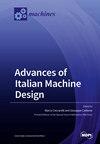Vibration Research on Centrifugal Loop Dryer Machines Used in Plastic Recycling Processes
IF 2.5
3区 工程技术
Q3 ENGINEERING, ELECTRICAL & ELECTRONIC
引用次数: 0
Abstract
This study investigates the vibrations of centrifugal loop dryer machines used in plastic recycling processes. These machines are characterized by large uncertainties, high vibration, and unmodeled dynamics, making the design and maintenance of real-time state estimators for their operational conditions difficult. The present study includes an analysis of the centrifugal loop dryer machines’ vibration characteristics and their influence on operation results based on vibration analysis, frequency response analysis, and expert advice. Two identical loop dryers installed and operated in parallel in a single recycling line were investigated. Measurements were performed using a two-sample measurement design and based on a one-sample statistical method for estimating uncertainty in repeated measurements of data processing. Additionally, a problem connected with incorrect machine operation during high vibration, resulting in insufficient drying of loaded material, was investigated. This was defined as a situation in which some melted plastic is still too wet after mechanical drying, caused by the incorrect installation of damper elements of the holding elements. Finaly, it is recommended that a correction of the machine installation and a control measurement are carried out to determine whether the vibration in the base of the machine still exists. A simplified theoretical vibration analysis of the rotating machine was also carried out in the present paper.塑料回收工艺中使用的离心环路干燥机的振动研究
本研究调查了塑料回收过程中使用的离心循环干燥机的振动情况。这些机器的特点是不确定性大、振动高、动力学未建模,因此很难设计和维护针对其运行状况的实时状态估计器。本研究基于振动分析、频率响应分析和专家建议,分析了离心环路干燥机的振动特性及其对运行结果的影响。研究对象是在一条回收生产线上并行安装和运行的两台相同的循环干燥机。测量采用了双样本测量设计,并基于单样本统计方法对数据处理重复测量的不确定性进行了估计。此外,还研究了高振动时机器操作不当导致装载材料干燥不充分的问题。这被定义为在机械干燥后,一些融化的塑料仍然太湿的情况,原因是固定元件的阻尼元件安装不正确。最后,建议对机器安装进行校正,并进行控制测量,以确定机器底部的振动是否仍然存在。本文还对旋转机器进行了简化的理论振动分析。
本文章由计算机程序翻译,如有差异,请以英文原文为准。
求助全文
约1分钟内获得全文
求助全文
来源期刊

Machines
Multiple-
CiteScore
3.00
自引率
26.90%
发文量
1012
审稿时长
11 weeks
期刊介绍:
Machines (ISSN 2075-1702) is an international, peer-reviewed journal on machinery and engineering. It publishes research articles, reviews, short communications and letters. Our aim is to encourage scientists to publish their experimental and theoretical results in as much detail as possible. There is no restriction on the length of the papers. Full experimental and/or methodical details must be provided. There are, in addition, unique features of this journal: *manuscripts regarding research proposals and research ideas will be particularly welcomed *electronic files or software regarding the full details of the calculation and experimental procedure - if unable to be published in a normal way - can be deposited as supplementary material Subject Areas: applications of automation, systems and control engineering, electronic engineering, mechanical engineering, computer engineering, mechatronics, robotics, industrial design, human-machine-interfaces, mechanical systems, machines and related components, machine vision, history of technology and industrial revolution, turbo machinery, machine diagnostics and prognostics (condition monitoring), machine design.
 求助内容:
求助内容: 应助结果提醒方式:
应助结果提醒方式:


